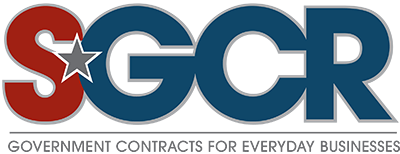Trying to figure out how to get a government contract? You’re in the right place! This no-nonsense guide walks you through the contracting process, from initial eligibility to bidding, and ultimately enables your small business to win contracts available every fiscal year.
With insights on registration, opportunity discovery, and bid preparation, you’ll find the straightforward advice your company needs for small, disadvantaged businesses to win contracts confidently.
Key Takeaways
- The federal government provides a plethora of government contractor opportunities, organized by NAICS codes, requiring awareness of various types of contracts and agency-specific needs such as cybersecurity readiness for the Department of Defense.
- A small business must meet eligibility criteria set by the SBA, register with SAM, attain small business certifications to participate in government contracting, and then utilize platforms like SAM.gov, dsbs.sba.gov, and Select GCR Pro to discover small business government contractor opportunities.
- Securing a contract involves preparing a competitive proposal that meets the solicitation document’s requirements, developing effective pricing strategies that balance competitiveness with profitability, and potentially navigating subcontracting and partnerships.
Understanding the Basics of Federal Contracts

The United States federal government signs over 11 million contracts each year, thus creating a vast arena of business opportunities. Many small businesses have experienced growth after the federal government awarded them contracts.
This marketplace is organized around the North American Industry Classification System (NAICS) codes, which classify small businesses for statistical purposes and are integral in federal contracting for procurement.
Understanding the role of federal agencies and the types of contracts available is a necessary step before entering this field.
The Role of Federal Agencies
Federal agencies play a pivotal role in federal government contracting. They are the primary source of federal contract opportunities, which small businesses can tap into by reviewing agency forecasts, using systems like the Federal Procurement Data System, and contacting the agency’s small business office. Each agency has specific contractual needs.
For instance, the Department of Defense requires small businesses to demonstrate cybersecurity readiness through the Cybersecurity Maturity Model Certification process. These agencies are equipped with an Office of Small and Disadvantaged Business Utilization (OSDBU) that aids contractors in securing contracts.
Types of Federal Government Contracts
The United States government offers various types of contracts, such as indefinite-delivery contracts, which do not require synopsizing individual orders except in specific circumstances, and multiple-award contracts.
Orders under such contracts must specify all required products and services or supplies, fall within the contract’s scope, and adhere to the stipulated maximum value.
Multiple-award contracts mandate a fair opportunity to all awardees for orders over the micro-purchase threshold, though there are exceptions like urgency or specialized service needs.
Additional specific requirements are necessary for executing cost-reimbursement orders and time-and-materials or labor-hour orders under federal contracts.
Eligibility Criteria for a Prospective Government Contractor

Understanding the eligibility criteria is key before embarking on the journey of federal contracting. The Small Business Administration (SBA) classifies small businesses as ‘small’ based on certain size standards that vary by industry. These size standards are aligned with NAICS codes and dictate the eligibility of a small business for government contracting.
Additionally, small businesses must comply with the Federal Acquisition Regulation and other applicable laws and regulations to be eligible for government contracting.
Small Business Certifications & Registrations
Small business certifications can be a game-changer when securing a government contract. Small businesses can compete for contracts reserved for them if they qualify as small based on the Small Business Administration’s size standards and meet the specific certification requirements of each contracting assistance program.
For example, Women-Owned Small Businesses (WOSB) can register for federal government contracts through http://Certify.sba.gov.
Registering your business with SAM (System for Award Management) is a prerequisite to start bidding for contracts. This registration is the first step towards becoming a government contractor and must be completed to certify eligibility for federal contracts reserved for specific small business categories.
Upon successful SAM registration, small businesses are provided a Unique Entity Identifier (UEI), a critical identifier required when bidding on proposals and engaging in federal contracting opportunities.
The old ways of a DUNS, or data universal numbering system, are over as this number is no longer required. A contracting officer or small business owner can still search for procurement opportunities and award history based on DUNS numbers.
Discovering Federal Procurement Opportunities

After you’ve understood the basics and registered your company with SAM, discovering federal contractor opportunities becomes your next step. SAM.gov is the official federal government platform where federal business opportunities are listed, including contracts required to be advertised when they exceed $25,000.
Market research can provide crucial contracts awarded insights into government agencies’ purchasing patterns, helping you target future contract opportunities. There are many ways to begin research with a SAM registration and knowing your targeted NAICS code.
Multiple databases and tools, such as dsbs.sba.gov and usaspending.gov, can help identify companies awarded new contracts and give a comprehensive market view. There are a few websites that you can use to perform market research. Knowing the NAICS code can narrow your search.
The main way you search on SAM.gov is through a contractor’s UEI number or universal entity identification number, but you must have a SAM registration to search. Every contractor gets one of these numbers when they register with SAM. The old way of obtaining a DUNS, or data universal numbering system, has been replaced with the new UEI number.
SAM.gov is the go-to platform for contracting opportunities over $25,000, serving as a critical resource for small businesses looking to engage with a targeted NAICS code.
It also facilitates access to the GSA MAS Program, which provides pre-negotiated prices for commercial products and services, as well as solutions on how get government contracts.
SAM.gov, the System for Award Management, significantly aids market research, particularly in identifying opportunities with government contracting. Its searchable database houses detailed profiles of registered government contractors and vendors, offering crucial data like company size, capabilities, certifications, and past performance.
Additionally, SAM.gov provides your user account access to historical contract data based on the NAICS code, facilitating analysis of past procurement trends and supplier performance metrics, aiding in cost-saving opportunities and alignment with best practices.
SAM.gov fosters collaboration and transparency by serving as a communication platform between government agencies and vendors. Through features like the Contract Opportunities section, businesses can access solicitations and procurement notices, while contracting officers can disseminate information about upcoming opportunities and engage in dialogue to clarify requirements.
This interactive exchange promotes a dynamic marketplace characterized by enhanced competition, innovation, and alignment between federal government needs and NAICS code or industry capabilities. Overall, SAM.gov empowers stakeholders with the tools and information necessary for thorough market research, transparency, and efficiency in procurement.
Leveraging the Dynamic Small Business Search
The Dynamic Small Business Search (DSBS) is a powerful tool that facilitates connections between government agencies and small business contractors. It enables them to collaborate on upcoming contracts. It also allows a business to save searches and come back anytime you need to.
DSBS is used by contracting officers from various government agencies to identify potential small businesses for future government contracting opportunities. This helps streamline the process and expand opportunities for small businesses.
By providing a centralized platform, DSBS significantly streamlines the process for contracting officers across diverse government agencies to identify potential small businesses suited for upcoming federal contract opportunities whose services will fulfill their needs.
What else can the DSBS do for you?
This streamlining is instrumental in enhancing efficiency within the procurement process, minimizing bureaucratic hurdles, and ultimately amplifying the potential for small businesses to win contracts.
Furthermore, DSBS is an invaluable tool for small businesses seeking to expand their reach to receive a government contract. Through this platform, a small business can gain increased visibility to government buyers actively searching for contractors.
Consequently, DSBS not only facilitates connections between government agencies and small businesses but also catalyzes economic growth by leveraging government contracts as a means of sustainable expansion and development.

Utilizing Select GCR Pro for Market Research
Select GCR Pro is a potent tool for your business. This proprietary software was developed to make connecting to United States Government websites and databases easy with one user-friendly platform.
A leading tool to access open contracts, search contract opportunities, recompete contracts, prime contractors, federal contacts, identify opportunities, and contract award history.
This powerful program is intended to make information available instantly. The comprehensive profiles of every registered business, contracting officer, prime contractor, and agency representative are at your fingertips.
Also, the program provides your business with the award history for contracting agents, government buyers, and primes. All this information makes your proposals stronger and more likely to be awarded a contract.
Preparing a Winning Bid

After identifying the right opportunities, it’s time to focus on preparing a winning bid. Thorough market research and a well-defined strategy are essential to ensure your business addresses the agency’s evaluation criteria. This involves creating a plan for the proposal to guide an organized writing process, outlining the structure, and writing content, while following deadlines.
Crafting a Competitive Proposal
Crafting a compelling proposal is essential for securing government contracts and winning federal government contract opportunities. This involves understanding the client’s mission, goals, and challenges, as well as conducting competitive analysis to differentiate your proposal from your competitor’s business proposal.
Pricing Strategies for Government Contracts

The success of your proposal can hinge on pricing. Thus, developing effective pricing strategies for government contracts is vital, which can be achieved through market research and balancing competitiveness with the profitability of a business.
Balancing Competitiveness and Profitability
Balancing competitiveness and profitability requires strategic management to win contracts. Utilizing activity-based costing and direct costing can lead to more accurate cost allocation across multiple government contracts.
Assessing the offerings and pricing strategies of competitors enables a business to differentiate its products and services and establish a compelling value proposition.
Navigating Subcontracting and Partnerships
Businesses have an alternative route to participate in federal contracting projects through subcontracting opportunities and partnerships. This allows small companies to work under a prime contractor, who retains the majority of responsibilities and risks but can outsource specific tasks to subcontractors.
To sell products or the services you provide, you typically need to be on interested vendor lists. Going on the business website and joining interested vendor lists is the best way to get on their radar.
Finding Subcontracting Opportunities
There are several resources for finding subcontracting opportunities. The GSA Subcontracting Directory and SAM.gov are instrumental tools for identifying available subcontracting jobs. GSA schedules are contract vehicles for business opportunities.
An updated, mobile-friendly website with a detailed portfolio can also showcase a subcontractor’s potential to prime contractors, leading to more subcontracting opportunities for your business.
Building Relationships with Prime Contractors
Successful subcontracting relies on the establishment of strong relationships with prime contractors. Firstly, it’s crucial to understand what the business needs for their contract. This means listening carefully and asking questions if anything is unclear.
Working together as a team and offering helpful ideas can also strengthen the business relationship. Lastly, always act professionally and honestly to build trust and ensure a positive working relationship and contract fulfillment.
Utilizing Resources and Support Services
To aid a small business in understanding and obtaining government contracts, the Small Business Administration (SBA) provides various support products and services. Additionally, Offices of Small and Disadvantaged Business Utilization (OSDBU) operate within federal agencies to promote the utilization of small businesses in federal procurement.
SBA’s Assistance Programs
The SBA offers specialized programs for women-owned small businesses, veteran-owned small businesses, and those that are both socially and economically disadvantaged to help them access federal contracting opportunities. Any business with a SAM registration can apply as long as they meet the qualifications specifically for each certification.
OSDBU and Resources for Government Agencies
The Office of Small and Disadvantaged Business Utilization (OSDBU) and the Office of Small Business Programs (OSBP) are dedicated to identifying opportunities to contract with small businesses, thereby assisting them in penetrating the federal marketplace.

